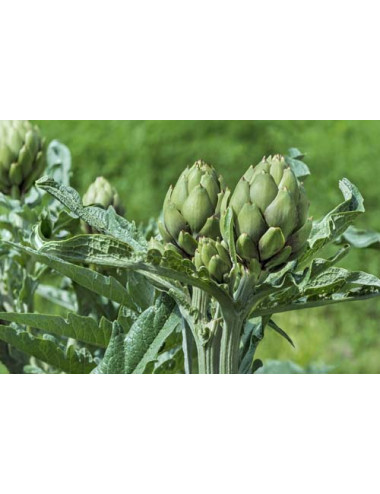

Botanical Extracts




(editar con el módulo de Información de seguridad y confianza para el cliente)
(editar con el módulo de Información de seguridad y confianza para el cliente)
(editar con el módulo de Información de seguridad y confianza para el cliente)
Secure payment
ARTICHOKE EXTRACT 5%
This product is not available at the moment
Artichoke is a plant native to the Mediterranean area. The leaf, stem, and root are used to make extracts, which are used as medicine.
Artichoke is also commonly consumed as a food. It contains chemicals that can reduce nausea and vomiting, spasms, and gas. These chemicals have also been shown to lower cholesterol and protect the liver.
People commonly use artichoke for indigestion and high levels of cholesterol or other fats in the blood. It is also used for high blood pressure, hepatitis C, irritable bowel syndrome (IBS), and many other conditions, but there is no good scientific evidence to support most of these uses.
*The US FDA has not evaluated these ingredient claims. The nutraceutical ingredient is not intended to diagnose, treat, cure or prevent any disease.
Product Details
Data sheet
- Origin
- Native to the Mediterranean area.
- Active compounds
- Carbohydrates, inulin and fibre. Sodium, potassium, phosphorus and calcium; vitamin B1, vitamin B3 and vitamin C.
- Functional benefits
- • Adjuvant in the treatment of obesity, diabetes and other diseases involving inflammation.
• Artichoke consumption benefits weight loss.
• For digestive complaints (dyspepsia, fullness, flatulence, nausea, stomach pain and vomiting).
• For the treatment of atherosclerosis and for kidney dysfunctions (due to its diuretic effect)
• The liver health, as its consumption allows protection from damage and promotes the growth of new tissue. - Others
- Its flowers, like those of the thistle, contain three enzymes (pepsin, chymosin and para-chymosin) which serve as milk rennet for making cheese. These cheeses are usually called 'queso de flor', e.g. 'Queso de flor de Guía' in Gran Canaria.
- Latin name
- Cynara scolymus






